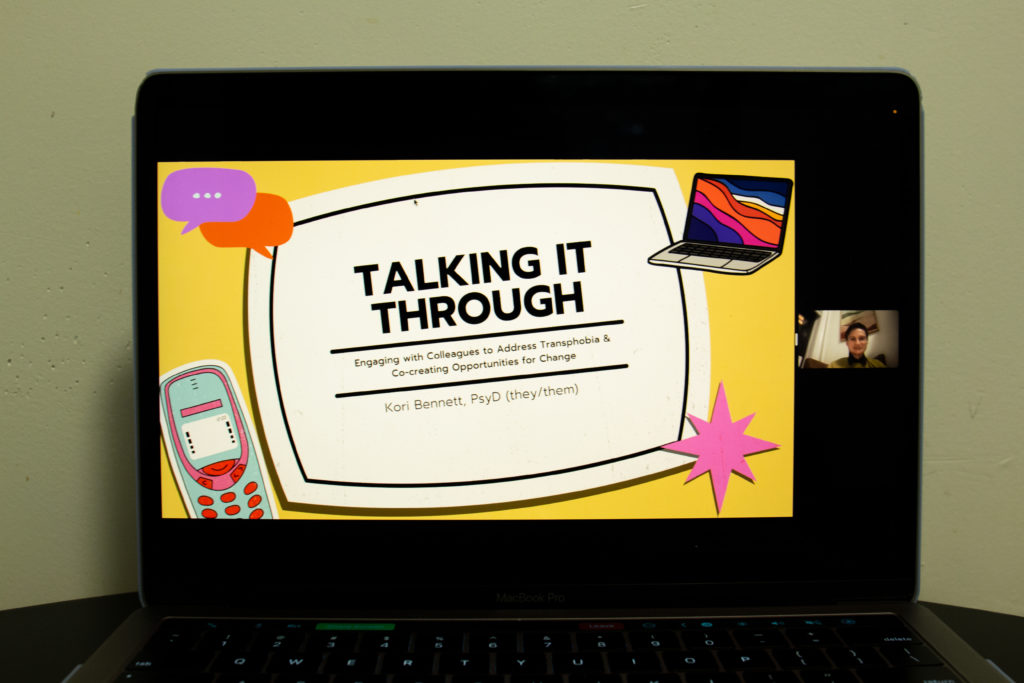A clinical psychologist discussed addressing transphobia and bias in the workplace at a virtual event Monday.
Kori Bennett – a clinical psychologist specializing in gender and gender-affirming care who works in Columbia University’s health services organization, Columbia Health – presented studies on transphobia and strategies to combat workplace transgender bias and discrimination. The Columbian College of Arts and Sciences LGBT Health Policy & Practice program hosted the online event, the third edition of their Spring Colloquium Series – a lecture series with a focus on health issues in the LGBTQ+ community.
Bennett said learning the histories of organizations and their power structures helps build knowledge on how to navigate the workplace as trans people.
“In terms of trauma, and then just general histories, what has our experience been and what are we coming into this new organization or role or conversation with?” Bennett said.
Bennett said finding supportive colleagues who are directly involved with workplace policies and structures can help address transphobia and bias in a work environment, like university IT staff who handle electronic medical records, which can hold sensitive information related to trans people’s personal health. They also said communicating with colleagues within the field can be a workplace support source for trans people.
Bennett also reviewed different studies relating to transphobia that examined relationships between transphobia and knowledge of trans issues, like health care professionals “lack of awareness” of trans people. Bennett said it was vital to discuss event attendees’ ideas and experiences after the presentation to understand their backgrounds and solutions to navigating their own workplaces.
“I’m hoping that folks will share and be open and also to take the learning with us without necessarily sharing or repeating what other folks have brought to the conversation knowing that this can be really sensitive and challenging work that we’re all doing,” Bennett said.










